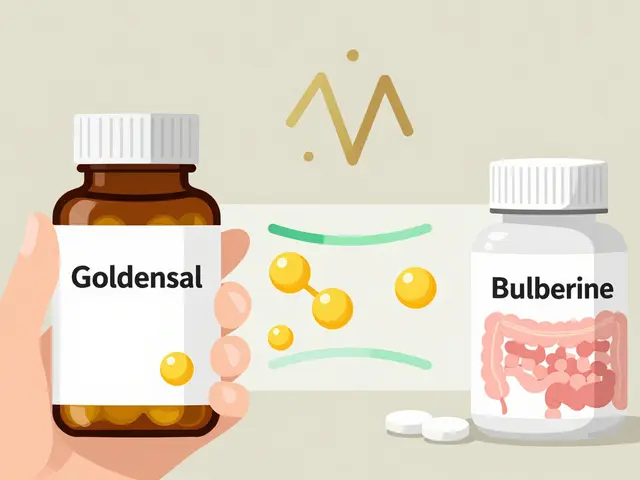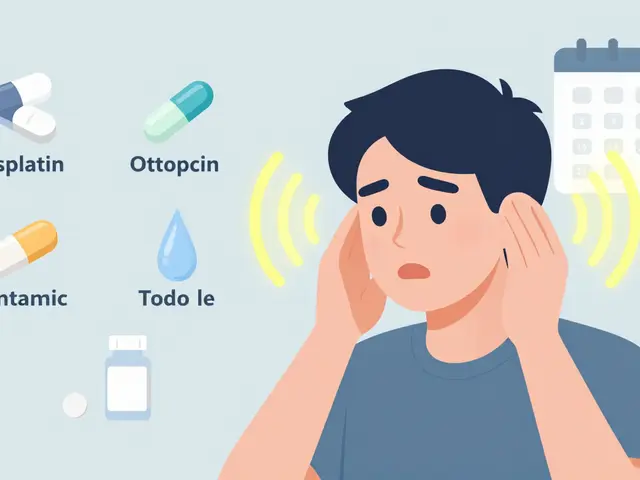RX2World November 2024: Best Alternatives for Ulcer and Nausea Meds
November was busy at RX2World. We rolled out two handy guides that compare popular drugs with newer or more affordable options. If you’re dealing with ulcer pain or constant nausea, these posts give you a clear look at what works, what to watch out for, and how to talk to your doctor about swapping meds.
Ulcer Prevention: Alternatives to Cytotec
Cytotec (misoprostol) is often used to protect the stomach lining when you’re on NSAIDs, but it’s not the only game in town. Our "Top 6 Alternatives to Cytotec for Ulcer Prevention" breaks down each option in plain English. Omeprazole, a proton‑pump inhibitor, cuts acid production and is available over the counter in many places. Famotidine, a H2 blocker, works a bit slower but has fewer drug interactions. Pantoprazole is another strong acid reducer that doctors often prefer for long‑term use.
We also covered newer combos like esomeprazole‑magnesium and low‑dose aspirin‑protective formulas. For each drug we listed common side effects—like headache with famotidine or possible low magnesium with long‑term PPI use—so you can weigh the trade‑offs. The guide emphasizes that the “best” choice depends on your personal health history, how you tolerate each medication, and whether you need a prescription or can pick something up at the pharmacy.
One quick tip from the article: if you’re already on a PPI, don’t add another acid‑blocking drug without checking with your doctor. Combining them rarely adds benefit and can increase the risk of nutrient deficiencies. Instead, discuss stepping down the dose or switching to a different class if you experience side effects.
Nausea Relief: Alternatives to Motilium
Motilium (domperidone) helps with nausea and gastroparesis, but it’s not approved everywhere and can have heart‑related concerns. Our "Top Motilium Alternatives in 2024" looks at five other options. Metoclopramide is a classic choice that works well for many, though it may cause drowsiness. Zofran (ondansetron) is popular for chemotherapy‑induced nausea and works fast, but it can be pricey.
We also explored newer players like Relamorelin, an experimental drug that’s still under study, and Botox injections into the stomach muscle for severe gastroparesis. For those who prefer a non‑drug route, low‑dose Nabilone, a synthetic cannabinoid, can calm the stomach and reduce nausea without the typical anti‑emetic side effects.
The article helps you compare effectiveness, typical dosing, and what side effects to expect—like the risk of tardive dyskinesia with metoclopramide or constipation with ondansetron. We remind readers that any switch should be done under medical supervision, especially if you have heart issues, diabetes, or are on other prescriptions.
Bottom line: you have solid alternatives whether you’re looking to protect your stomach or calm a queasy gut. Use the guides to start a conversation with your pharmacist or doctor, and find the option that fits your lifestyle and health needs.
When it comes to preventing ulcers and reducing stomach acid, Cytotec isn't the only option available in 2024. There are several effective alternatives including Omeprazole, Famotidine, and Pantoprazole that work to reduce or manage stomach acid in different ways. Each alternative comes with its own benefits and downsides, such as varying side effects and ease of use. It's important to consider these factors when choosing the best medication for individual needs. The right choice depends on individual circumstances, tolerance levels, and medical history.
Categories
Archives
Recent-posts
Pharmacist-Led Substitution Programs: How They Work and Why They Reduce Hospital Readmissions
Dec, 11 2025



 Medications
Medications




